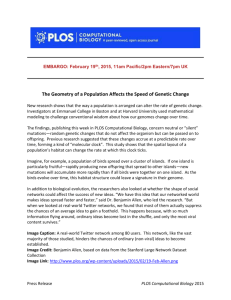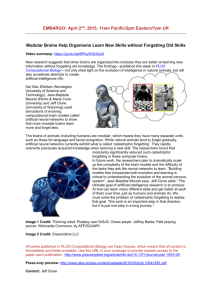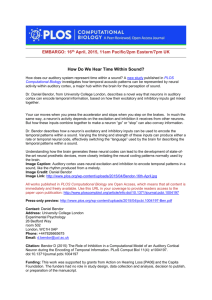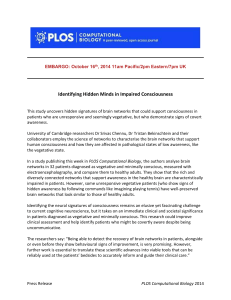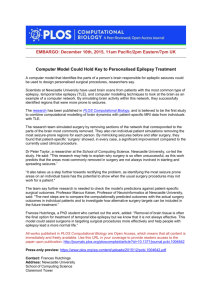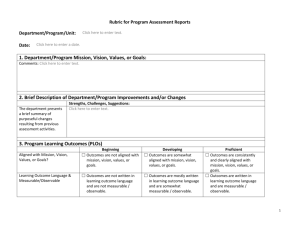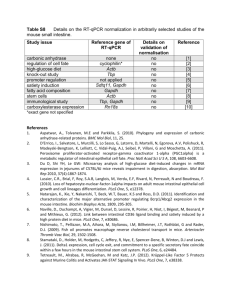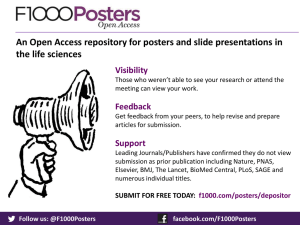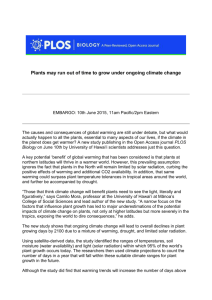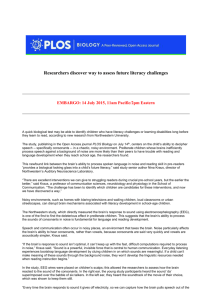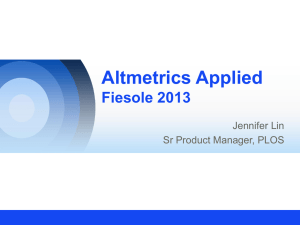Media Release
advertisement
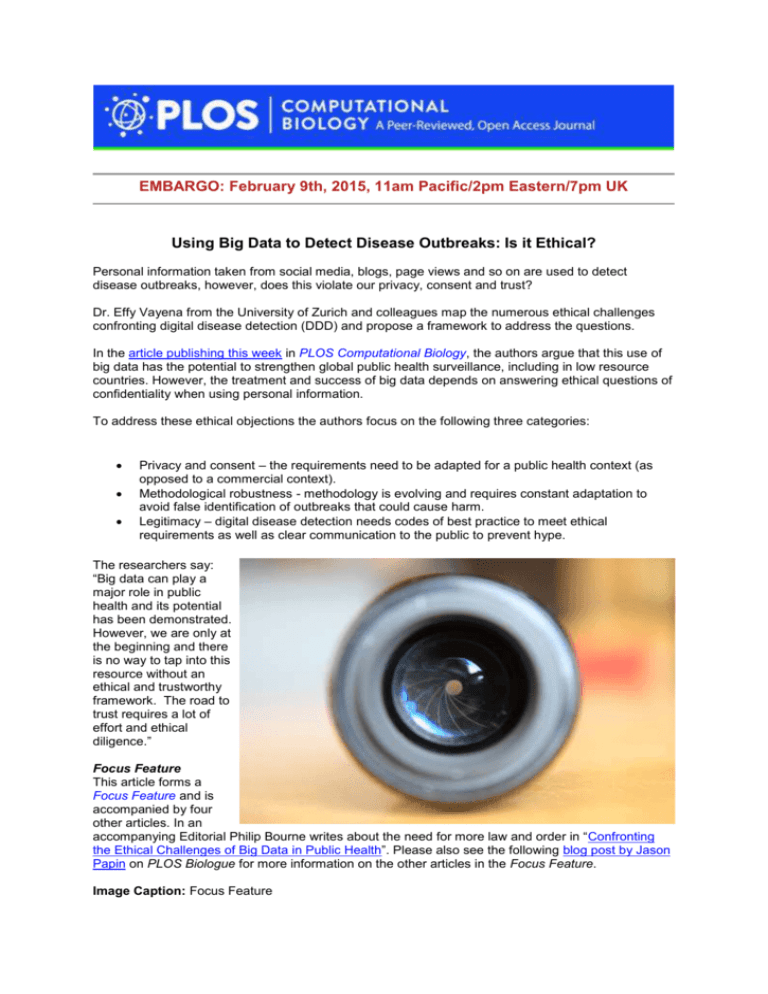
EMBARGO: February 9th, 2015, 11am Pacific/2pm Eastern/7pm UK Using Big Data to Detect Disease Outbreaks: Is it Ethical? Personal information taken from social media, blogs, page views and so on are used to detect disease outbreaks, however, does this violate our privacy, consent and trust? Dr. Effy Vayena from the University of Zurich and colleagues map the numerous ethical challenges confronting digital disease detection (DDD) and propose a framework to address the questions. In the article publishing this week in PLOS Computational Biology, the authors argue that this use of big data has the potential to strengthen global public health surveillance, including in low resource countries. However, the treatment and success of big data depends on answering ethical questions of confidentiality when using personal information. To address these ethical objections the authors focus on the following three categories: Privacy and consent – the requirements need to be adapted for a public health context (as opposed to a commercial context). Methodological robustness - methodology is evolving and requires constant adaptation to avoid false identification of outbreaks that could cause harm. Legitimacy – digital disease detection needs codes of best practice to meet ethical requirements as well as clear communication to the public to prevent hype. The researchers say: “Big data can play a major role in public health and its potential has been demonstrated. However, we are only at the beginning and there is no way to tap into this resource without an ethical and trustworthy framework. The road to trust requires a lot of effort and ethical diligence.” Focus Feature This article forms a Focus Feature and is accompanied by four other articles. In an accompanying Editorial Philip Bourne writes about the need for more law and order in “Confronting the Ethical Challenges of Big Data in Public Health”. Please also see the following blog post by Jason Papin on PLOS Biologue for more information on the other articles in the Focus Feature. Image Caption: Focus Feature Image Credit: Steve Rainwater/Flickr Image Link: http://www.plos.org/wp-content/uploads/2015/01/Camera-Lens.jpg All works published in PLOS Computational Biology are Open Access, which means that all content is immediately and freely available. Use this URL in your coverage to provide readers access to the paper upon publication: http://www.ploscompbiol.org/article/info:doi/10.1371/journal.pcbi.1003904 Press-only preview: http://www.plos.org/wp-content/uploads/2015/02/pcbi.1003904_2.pdf Contact: Effy Vayena Address: University of Zurich Institute of Biomedical Ethics Pestalozzistrasse 24 Zurich, 8032 Swizterland Phone: +41 44 634 8081 Email: vayena@ethik.uzh.ch Citation: Vayena E, Salathé M, Madoff LC, Brownstein JS (2015) Ethical Challenges of Big Data in Public Health. PLoS Comput Biol 11(2): e1003904.doi:10.1371/journal.pcbi.1003904 Funding: The authors received no specific funding for this article. Competing Interests: Marcel Salathé is an Associate Editor for PLOS Computational Biology. About PLOS Computational Biology PLOS Computational Biology (www.ploscompbiol.org) features works of exceptional significance that further our understanding of living systems at all scales through the application of computational methods. All works published in PLOS Computational Biology are Open Access. All content is immediately available and subject only to the condition that the original authorship and source are properly attributed. Copyright is retained. For more information follow @PLOSCompBiol on Twitter or contact ploscompbiol@plos.org. About PLOS PLOS is a nonprofit publisher and advocacy organization founded to accelerate progress in science and medicine by leading a transformation in research communication. For more information, visit www.plos.org.
